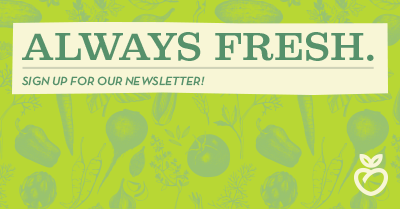Let’s talk about Bees!
Thank to our wonderful Tastemaker, Paula Tancredi Penman for this blog post!
“We’re the only ones who make honey, pollinate flowers, and dress like this. If we’re going to survives as a species, this is our moment.” Bee Movie
The wonderful stingless honey bee is primarily distinguished by the production and storage of, what else, honey! So you might think that they are also the most effective pollinators, and that surprisingly isn’t so. Native bees are two to three times better pollinators than honeybees. And this is great news for New York!
Crops such as apples, almonds, blueberries, cherries, oranges and squash are directly dependent on insects for pollination. Many of those crops are staples of New York: the state ranks second in the country for apple production, 9th in blueberry production, and pumpkins are in the top five of vegetable crops in terms of crop value for farmers. And one of the most essential insects in pollinating these important New York crops is the bee.
Surprisingly, perhaps, it is not just the honeybee doing the pollinating; over one hundred different bee species are responsible for your delicious New York state apple! It turns out that honeybees alone are not the most effective pollinators; we have to thank all our native bees. A study by Cornell entomology professor Bryan Danforth found that “an individual visit by a native bee is actually worth far more than an individual visit by a honeybee. Honeybees are more interested in the nectar. They don’t really want the pollen if they can avoid it. The wild, native bees are mostly pollen collectors. They are collecting the pollen to take back to their nests.”
So how do we ensure that our apple, blueberry, and squash crops are sustainable? We must protect and support the bees. And it is not just for those crops. According to research conducted by Cornell University, crops pollinated by bees and other insects contribute over $16 billion to farm income. Add to that the crops requiring indirect pollination, i.e. pollination is required to create the crops’ seeds, and the total contribution to farm income by crops needing either direct or indirect pollination is $29 billion.
New Yorkers enjoy their local fruits and vegetables, New York farmers need their income, and therefore we all need the bees! You can help protect and support the bees and their environment. Consider any of the following:
Donate: The Pollinator Partnership is the world’s largest nonprofit organization dedicated solely to helping protect and promote pollinators such as bees.
Buy local: Be on the lookout for local organically grown fruits, vegetables and honey that help support beekeepers in your area. Look for honey from Ballston Lake Apiaries at the Saratoga Farmers’ Market and on the shelves at Healthy Living.
Plant: Plant a bee-friendly garden habitat. There is something you can grow to help bees, no matter where you live. Check out the U.S. Fish & Wildlife service’s guide to planting for pollinators or the Pollinator Partnership.



